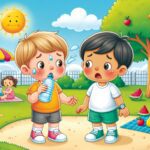Hydration is fundamental for breastfeeding mothers to maintain milk production and overall health. In this comprehensive guide, we delve into hydration tips for breastfeeding mothers, offering practical advice to ensure mothers are well-hydrated for the benefit of both themselves and their babies.
Understanding the Importance of Hydration While Breastfeeding
When you are breastfeeding, your body requires extra fluids to produce milk. This increased demand makes it crucial for nursing mothers to pay attention to their hydration levels. Adequate hydration supports not only milk production but also helps in recovering from childbirth and maintaining overall health.
Dehydration can lead to decreased milk production, fatigue, and can even affect your baby’s feeding patterns. It’s therefore essential to ensure that you’re consuming enough fluids throughout the day to meet these increased needs.
Hydration Tips for Breastfeeding Mothers
Ensuring you are properly hydrated is key to a successful breastfeeding journey. Here are some targeted hydration tips for breastfeeding mothers to help you keep up with your fluid needs:
- Drink plenty of water: Aim for at least 8-12 glasses of water a day. Keeping a water bottle nearby at all times can help remind you to drink regularly.
- Include hydrating foods in your diet: Fruits and vegetables with high water content, such as cucumbers, strawberries, and oranges, can contribute to your overall fluid intake.
- Avoid excessive caffeine: While small amounts of caffeine are considered safe during breastfeeding, large quantities can lead to dehydration. Try to limit coffee and tea intake.
- Listen to your body: Let thirst be your guide. If you’re feeling thirsty, it’s a sign that your body needs more fluids.
- Monitor your urine color: Light yellow or almost clear urine is a good indicator that you are well-hydrated.
Additionally, consider incorporating dairy-free calcium sources into your diet, as calcium plays a vital role in both your health and your baby’s development.
Special Considerations for Hydration
While the general hydration tips for breastfeeding mothers apply to most, there are certain situations where additional considerations are needed. For example, during hot weather or if you’re exercising, your body will require more fluids to stay hydrated.
It’s also crucial to be aware of the signs of dehydration in exclusively breastfed babies, as their hydration is directly linked to your own. If you notice any signs of dehydration in your baby, increase your fluid intake and consult a healthcare professional.
For more resources, explore our article on natural remedies to increase breast milk supply, which includes tips on hydration and diet. Remember, staying hydrated is not just about drinking water; it’s about ensuring both you and your baby are healthy and thriving.
For further reading on breastfeeding and nutrition, check out the impact of maternal nutrition on breast milk composition and learn how your diet affects your baby’s growth and development.
Lastly, always consult with a healthcare provider for personalized advice suited to your specific needs. By following these hydration tips for breastfeeding mothers and being mindful of your body’s signals, you can ensure a healthier breastfeeding experience for both you and your baby.













